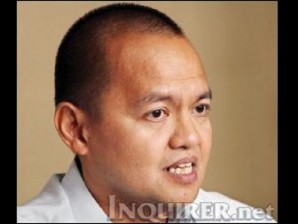MARAWI CITY, Philippines — “We are at the door of an agreement.”
This was how government chief negotiator Marvic Leonen described the progress of the Philippine government’s peace negotiations with the Moro Islamic Liberation Front (MILF).
“Let us persevere. Now is indeed the time for peace,” Leonen said in his opening statement to formally kick-start the 29th exploratory meeting in Kuala Lumpur.
Instead of last Monday, the opening ceremony was reset to Tuesday, after the holding of an executive session.
Usually, an executive session involves only the panel chairs, heads of their respective secretariats, and the Malaysian facilitator. Setting the agenda of the exploratory meeting is normally tackled in an executive session.
The three-day meeting between the parties comes amid high expectations of another breakthrough as a sequel to their much lauded initial agreement on 10 Decision Points of Principles signed last April.
Malaysian diplomat Tengku Dato Abd Ghafar Tengku Mohamed, who has been facilitating the talks, even revealed this upcoming breakthrough two weeks ago when he spoke before the Bangsamoro Leaders Assembly in Camp Darapan, the MILF’s administrative complex in Sultan Kudarat, Maguindanao.
To illustrate the eventual “working relationship” between the national government and the future Bangsamoro self-governance entity, Leonen highlighted the “extraordinary cooperation between our ceasefire committees and the various forces that we have on the ground” in connection with the MILF-facilitated assembly.
“In an unprecedented manner, you saw the full cooperation of the Armed Forces of the Philippines and the Philippine National Police to make your consultation a success,” Leonen stressed.
“Indeed, the working relationship was impressive. I believe that it was so because it was founded on trust and the respect that our troops already have for each other,” he added.
“It is this working arrangement that we want to foster with the Moro Islamic Liberation Front,” Leonen further said.
“This administration is prepared to fully invest in a harmonious working relationship between the National Government and the new autonomous political entity to enable an autonomy that is truly viable, workable and meaningful.”
Last April, the parties agreed to replace the current Autonomous Region in Muslim Mindanao (ARMM) with a new autonomous political entity, which would have far greater political and economic self-governance powers consistent with the principles of “genuine autonomy.”
Leonen’s opening address did not mention the status of specific substantive issues on which the parties need to build consensus on.
Mainly, these issues include transition, wealth-sharing, power-sharing, territory, normalization, Bangsamoro basic law, and constitutional accommodation.
However, he provided hints on how the government panel has been formulating ways to make “truly possible for meaningful autonomy to exist.”
These appear to be based on critiques of how the 1996 Final Peace Agreement with the Moro National Liberation Front was carried out.
“Never again would it be possible for rights or powers granted under any law or norm be rendered inutile without the corresponding increase in the ability of the autonomous government to mobilize and/or capacitate leaders…,” Leonen said.
“Never again would the initial stages of establishing that autonomous political entity be starved with the lack of funds; there will still be investments or national fund transfers from the national government,” Leonen added.
“Eventually, there will be the ability of the NPE (new political entity) to generate its own sources of revenues and this will be clearly seen,” he further said.
Leonen emphasized that in building a “general plan” to establish the Moro autonomous entity, there must be “openness to adjustments should real challenges present themselves in the implementation, and the flexibility to assess violations of commitments in its context.”
He has been advocating for the signing of a negotiated settlement within the year in order to give the parties time to adjust their peace formula.
Leonen pointed out that the self-governance entity’s leaders must “not only have the competence to govern but… also approach leadership as positions of trust and stewardship.”
On Monday, the MILF expressed optimism a breakthrough could be achieved on the issue of transition, largely banking on results of backroom negotiations facilitated by Tengku in June.
In an earlier interview, MILF chief negotiator Mohagher Iqbal also sounded optimistic on the other substantive issues although he was quick to say “anything can still happen in the actual negotiations.”
Iqbal disclosed that on power-sharing, the issues of whether energy and elections would be exclusive powers of either the central government or the autonomous entity have remained contentious.
On transition, MILF chief Murad Ebrahim said there might be some practical sense to scrap regional elections in the ARMM in the short term. Ebrahim had said that instead of a six-year timeframe, the MILF has committed to a three-year transition so that this could happen within the term of President Aquino.
Ebrahim also clarified that the MILF would want the eventual peace formula “entrenched into the Philippine Constitution” so that “it cannot be altered unilaterally by government.”
Leonen has been assuring of “flexibilities” in the current charter, which envisioned autonomous governments for both the Cordillera and Muslim Mindanao regions.
On territory, Iqbal has said the guarantee of holding a plebiscite among affected villages will ensure democratic participation in determining the scope of the self-governance entity.
Leonen himself praised the rebel group’s adherence to democratic processes.
“Th(e) assembly is living proof of the MILF’s commitment to consult and therefore to ensure that the points they arrive at is the democratic choice of the people that they represent at the negotiating table,” he said.
During the opening rites, acting ARMM governor Mujiv Hataman joined the government panel as consultant.
